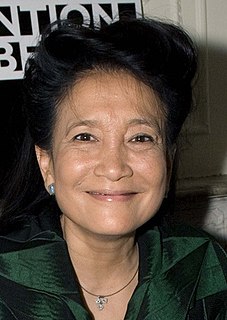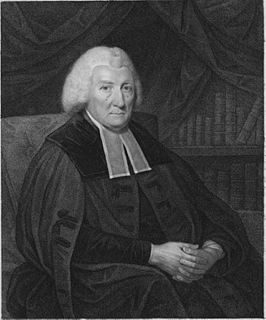A Quote by Edmund Burke
A kind Providence has placed in our breasts a hatred of the unjust and cruel, in order that we may preserve ourselves from cruelty and injustice. They who bear cruelty, are accomplices in it. The pretended gentleness which excludes that charitable rancour, produces an indifference which is half an approbation. They never will love where they ought to love, who do not hate where they ought to hate.
Related Quotes
Christianity does not want us to reduce by one atom the hatred we feel for cruelty and treachery. We ought to hate them. Not one word of what we have said about them needs to be unsaid. But it does want us to hate them in the same way in which we hate things in ourselves: being sorry that the man should have done such things, and hoping, if it is anyway possible, that somehow, sometime, somewhere he can be cured and made human again.
Do I need to argue to Your Honor that cruelty only breeds cruelty? That hatred only causes hatred; that if there is any way to soften this human heart which is hard enough at its best, if there is any way to kill evil and hatred and all that goes with it, it is not through evil and hatred and cruelty; it is through charity, and love, and understanding?
The Theatre of Cruelty has been created in order to restore to the theatre a passionate and convulsive conception of life, and it is in this sense of violent rigour and extreme condensation of scenic elements that the cruelty on which it is based must be understood. This cruelty, which will be bloody when necessary but not systematically so, can thus be identified with a kind of severe moral purity which is not afraid to pay life the price it must be paid.
One can write out of love or hate. Hate tells one a great deal about a person. Love makes one become the person. Love, contrary to legend, is not half as blind, at least for writing purposes, as hate. Love can see the evil and not cease to be love. Hate cannot see the good and remain hate. The writer, writing out of hatred, will, thus, paint a far more partial picture than if he had written out of love.
You need not fear me, for I not only should think it wrong to marry a man that was deficient in sense or in principle, but I should never be tempted to do it; for I could not like him, if he were ever so handsome, and ever so charming, in other respects; I should hate him—despise him—pity him—anything but love him. My affections not only ought to be founded on approbation, but they will and must be so: for, without approving, I cannot love. It is needless to say, I ought to be able to respect and honour the man I marry, as well as love him, for I cannot love him without.
Compassion is an emotion of which we ought never to be ashamed. Graceful, particularly in youth, is the tear of sympathy, and the heart that melts at the tale of woe. We should not permit ease and indulgence to contract our affections, and wrap us up in a selfish enjoyment; but we should accustom ourselves to think of the distresses of human, life, of the solitary cottage; the dying parent, and the weeping orphan. Nor ought we ever to sport with pain and distress in any of our amusements, or treat even the meanest insect with wanton cruelty.
The problem with using force in our lives is that we always create a counterforce. For example, If you're with a child and the child says, "I hate you," which is a very low energy, and you respond with, "I hate you too," you have lowered the collective energy that you are both in, and both of you will he weakened. Whereas, if you respond to, "I hate you," with love, which is what, instinctively, we know what to do, then we can dissolve and dissipate that hatred.
Out of hate, if you try to love that love will just be a hidden hate; it cannot be anything else-you are full of hate. Go to the preachers and they will say, "Try to love." They are talking nonsense because how can a person who is full of hate try to love? If he tries to love, this love will come out of hatred; it will be poisoned already, poisoned from the very source. And this is what the misery of all preachers is.
The darkness of racial injustice will be dispelled only by the light of forgiving love. For more that three centuries American Negroes have been frustrated by day and bewilderment by night by unbearable injustice, and burdened with the ugly weight of discrimination. Forced to live with these shameful conditions, we are tempted to become bitter and retaliate with a corresponding hate. But if this happens, the new order we seek will be little more than a duplicate of the old order. We must in strength and humility meet hate with love.









































